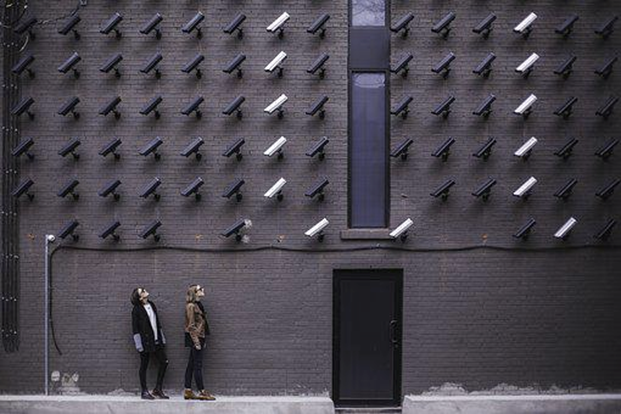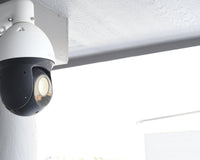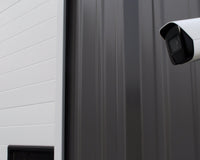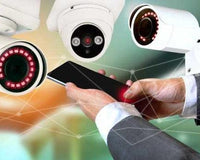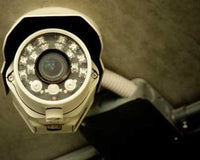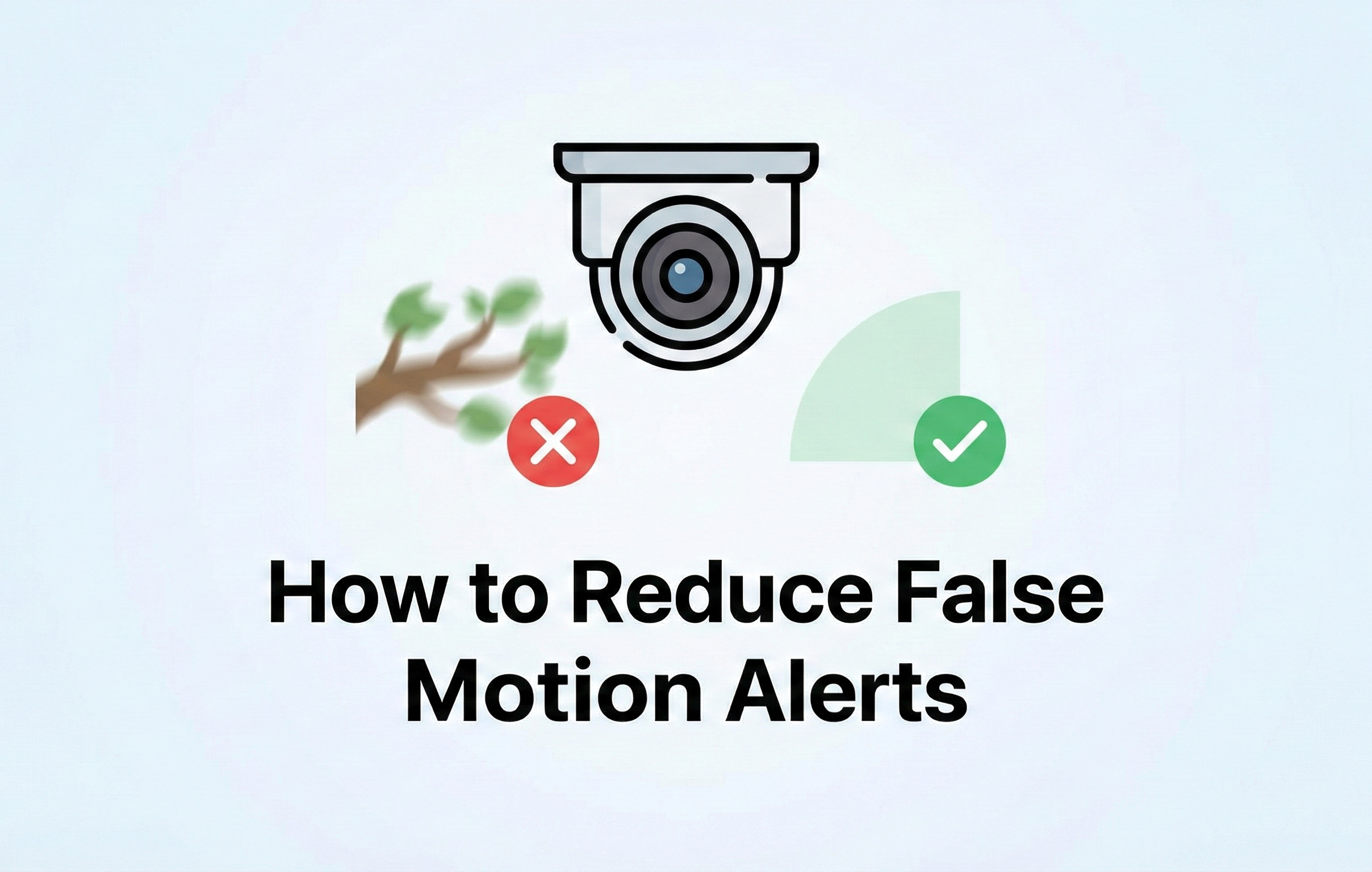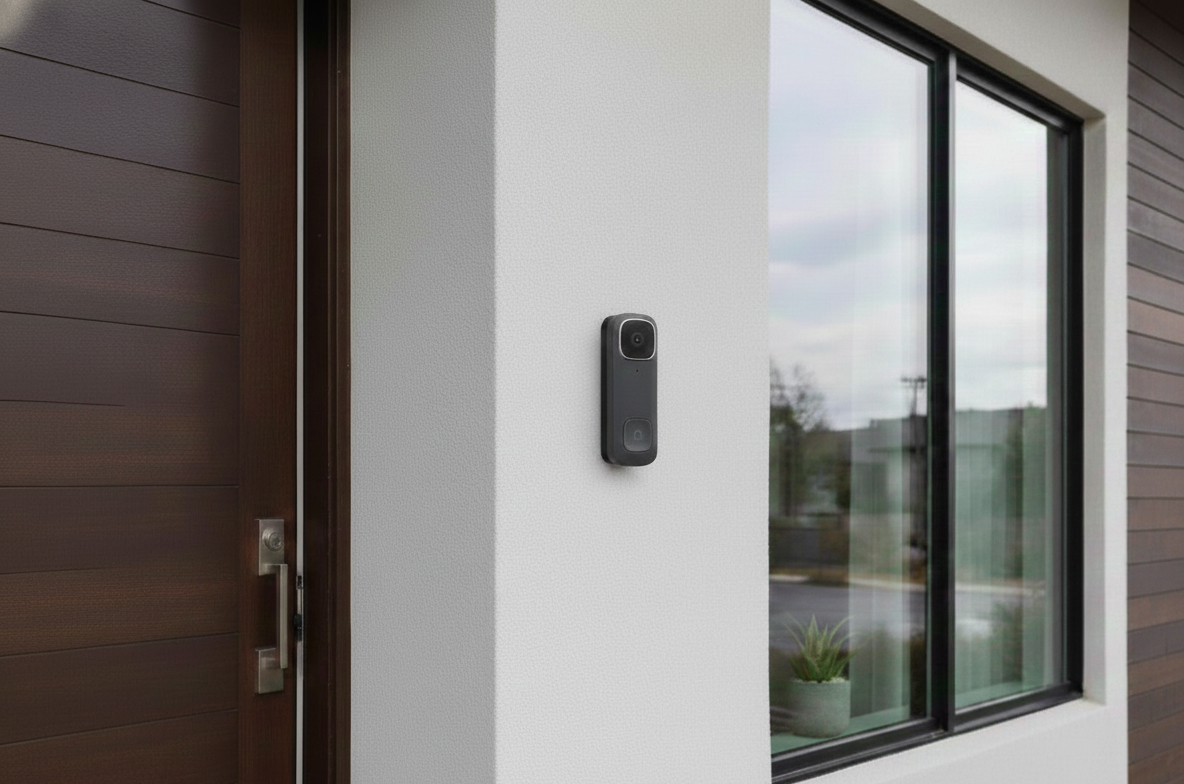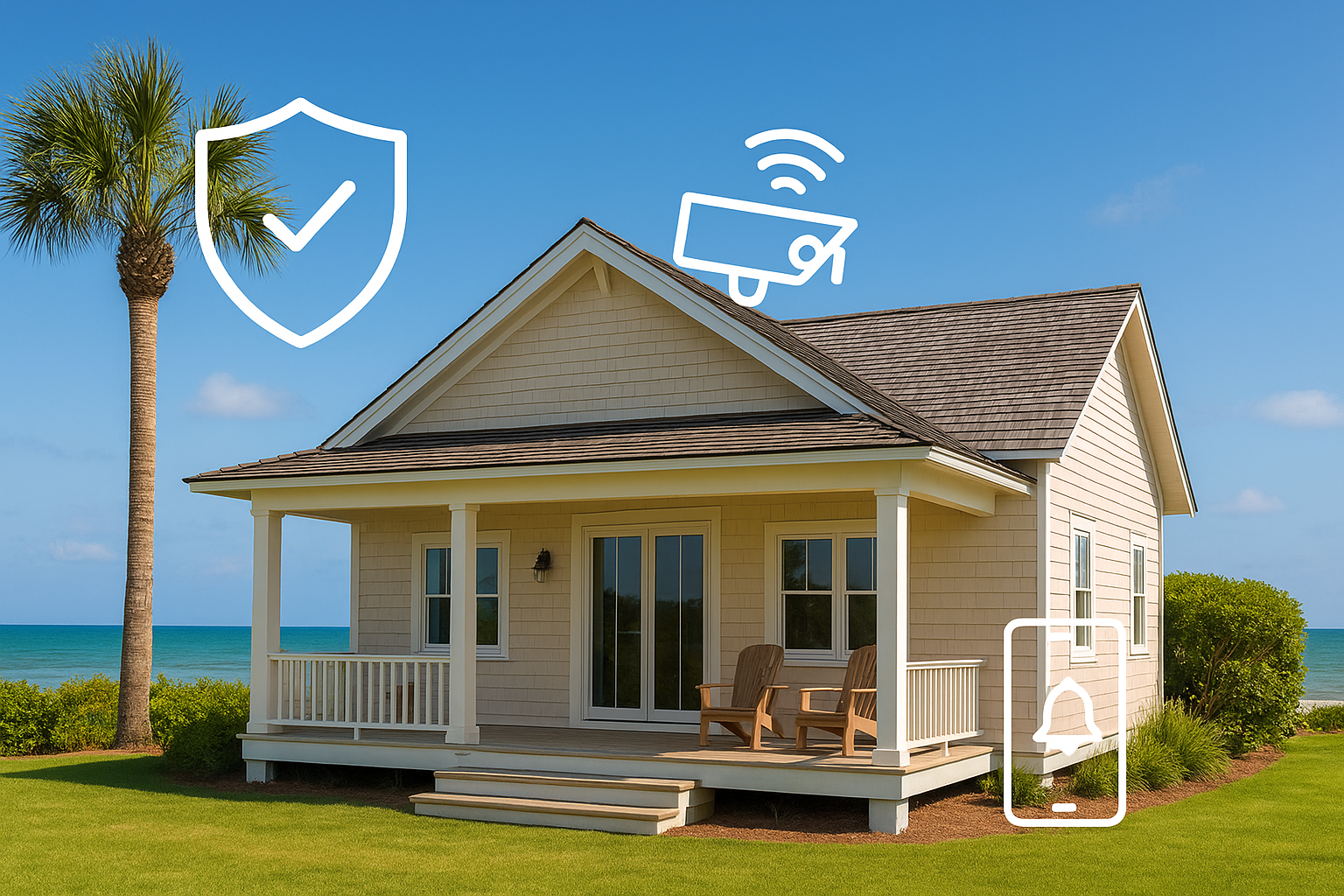When you're running a business, security should be one of your top priorities.
Installing security cameras is one important step in keeping your property and employees safe.
But where should you place your security cameras? This can be a difficult question to answer, but we're here to help.
In this post, we'll discuss the best places to mount CCTV security cameras in your business. So read on for some helpful tips!
Where Should You Position Your CCTV Cameras
CCTV cameras are used to protect your commercial properties from damage and theft, and installing CCTV cameras in specific locations can provide peace of mind when you're not always available.
Camera recordings have improved over time, allowing for better identification of hazardous individuals, but this is more often than not only after the damage has been done.
Why Use CCTV At Your Business?
CCTV camera systems are a preventative technique, with live camera feeds delivered around the clock to observation staff who may be alerted to movement or suspicious behaviour.
Usually, an audio announcement warning, which sounds when visitors approach near enough to hear it, has been found in multiple studies the security of your stuff is paramount in light of a growing number of car break-ins. into the site.
Having visible security cameras also acts as a deterrent to improve business security - would-be criminals are less likely to target a business that they know has active CCTV cameras in place.
When you install security cameras in your business it can also help to prevent employee theft as well as false worker's compensation claims - further improving business security.
It's important to note that the cops are more likely to investigate and apprehend criminals if there is footage available, so it's worth considering this when choosing whether or not to install CCTV at your business.
Which Are The Best Positions For Cameras
To assist you in determining where to place security and cameras, we've highlighted some essential and frequently used locations as possible installation sites for security camera equipment.
The Front Door and Back Door
If you're running a business, one of the most important places to have a security camera is at the entrance and exit door. This will allow you to keep track of who is entering and exiting the premises, as well as identify any possible intruders.
It's important to have security cameras at all entrances and exits of your business, not just the front door. If you have a back door or side entrance, be sure to install a camera there as well.
The Parking Lot
Another important place to have security cameras is in the parking lot. This will allow you to keep an eye on employee cars as well as customers' vehicles.
If you have a lot of employees, you may want to consider installing multiple cameras in the parking lot so that you can keep track of all the vehicles.
The Warehouse
If you have a warehouse or storage area on your property, it's important to have security cameras installed there as well. This will allow you to keep an eye on inventory and make sure that nothing is being stolen.
It's also important to have security cameras in any areas where valuable items are kept, such as safes or vaults.
The Office
Of course, you'll also want to install security cameras in the office. This will allow you to keep an eye on employees and make sure that they are working.
It's important to have cameras in all areas of the office, including the reception area, conference room, and break room.
The Cash Register
Another important place to have security cameras is at the cash register. This will allow you to keep an eye on transactions and make sure that no one is stealing from the register.
It's also important to have security cameras in any areas where money is exchanged, such as the ATM or safe.
Office Entryways and Hallways
In addition to the front and back doors, it's one of the top places to install security cameras in any office entryways and hallways.
This will help you keep track of employee and visitor traffic, as well as any potential security risks that might be present.
Reception Area
It is critical to cover the reception since it is a high-traffic area. It is the first place your employees and visitors walk into when they come to your office.
If you don't want to be too transparent about having a security camera there, a covert security camera that blends in with the other décor might be an option for you.
Cameras hidden in clocks, picture frames, doorknobs, statues, smoke detectors, sprinkler heads, and so on are just a few of the places you might use covert cameras.
However, utilizing concealed cameras may lead to legal issues. As a result, it is recommended that you consult your state's legislation before employing such security cameras.
The Stock Room
The stock room is another important area to consider when installing security cameras, as it's often the location of high-value items.
A surveillance system positioned in the stock room can help you keep track of inventory and identify any potential theft or damage that might be taking place.
Loading Docks
Other apparent targets for theft include loading docks and unloading docks.
As a result, it's critical that you have security cameras in place near loading docks to keep track of the shipments and outgoing stock.
It's also critical to keep these docks well-lit with floodlights so you can get crisp footage.
In secluded areas
Parking lots, back alleys, and dumpster areas are all important strategic locations for installing surveillance cameras in your office building.
Unfortunately, these sites are known for violent and criminal activity. Do not underestimate the importance of your dumpster in aiding theft.
Employees have been observed to steal by putting various items into the dumpster and then retrieving them later during the day.
Floodlights and security cameras should be installed in these locations. Then, criminals might be deterred from committing an assault because it may result in a high fine or time in jail.
In short, if you have a business, there are many places where it might be beneficial to install security cameras.
The most important thing is to ensure that the cameras are installed in strategic locations so you can get the most out of your investment.
What Is the Ideal Height for Installing Cameras?
You should now pick the ideal security camera placement around your company, and you'll need to think about the best height for your outdoor cameras.
Before deciding on the installation height of your security camera, keep the following points in mind:
- If you set it too low, vandals and thieves will notice it immediately. It will also be plainly visible and easy to access for them.
- Be careful you don't position CCTV cameras too high or far away from the monitored area, zooming in on an area may cause pixelated pictures, which might impact face identification.
- If the security camera is positioned in a way that it can obstruct your viewing angle or block a necessary line of sight, move it.
Recommended Height to Place Cameras
The most frequent install height for companies is 2.5m or 5m, however, it entirely depends on the property or room you are putting them in.
At 2.5 meters, cameras provide a better close-range perspective and higher quality pictures since they are closer to the subject.
At 5 meters, the lens's focal length becomes shorter, allowing you to capture more of the surroundings at a wider angle while also causing image distortion when zooming in.
The Angle of the CCTV Camera
Instead of being positioned at eye level, cameras are frequently set on high vantage points with the camera pointed down.
The angle of the camera downward allows you to focus on specific objects, such as computers or the front door, while also enabling a wider capture angle of the environment.
Camera Quality
Placing cameras at eye level means the images are of better quality because they can capture a single thing, but they have a narrower angle of view and may miss events or activities in the surrounding area.
Lens size
When purchasing a security camera, it's also crucial to consider the lens size. The viewing angle will be larger with a smaller lens diameter, but the viewing depth will be lesser.
A 3-5m depth of field is typical for a security camera with a 2.8mm lens, which will provide a broad 90-degree angle of vision but lower-quality photos down to 3-5m.
A 25mm lens provides a clear line of sight down to a depth of 25m, but it gives you a viewing angle of 17/18 degrees.
For clearer identification, choose a security camera with a 3-5mm lens for close range and 25mm for long-range viewing.
Positioning of Security Cameras Indoors
Monitoring the entrance of your store or office building is essential to keeping track of visitors and deterring theft.
When choosing where to place security cameras inside, make sure it captures the entire entrance and that there are no blind spots.
You can also put a security camera in the stairwell or lobby to keep an eye on employees and any suspicious activity.
Another strategic location for an indoor security camera is in front of the cash register. This will help prevent theft and catch any shoplifters.
Is It Worth Hiring a Professional to Install Your CCTV Cameras?
Investing in your business's security might be costly, but it may save you hundreds of dollars in equipment and productivity losses.
As a result, having a remote security system will also help to reduce your insurance rates.
Hiring a Professional
Installing a CCTV camera system can be done by a business owner, but professional installation may be necessary to get the best viewing angles.
A professional installer will know how to place the cameras in the right spots to capture all the action, and they will also ensure that the system is functioning properly.
When it comes to business security, there is no such thing as being too cautious.
Battery Vs Wired Cameras
Battery-powered cameras are easier for the end-user to install, but wired security cameras are typical of a higher quality.
Guaranteed Correct Setup
Hiring a professional also guarantees that your system will be configured correctly from the start and that you'll have access to customer support in case any technical difficulties arise down the line.
If you do plan to install cameras yourself, be sure to test them out thoroughly before leaving them unmonitored.
When it comes to your company's security, don't cut corners—it's not worth the risk.
Are There Any Security Camera Placement Laws in the US?
There are no specific laws around placing security cameras in and around your business.
However, if you have staff, you'll need to comply with data protection laws, which state that individuals must be made aware of any surveillance.
The best way to do this is to display signs near the cameras that let people know they're being monitored.
Data Protection Laws in the US
In the United States, the two main data protection laws are the Federal Trade Commission Act and the Children's Online Privacy Protection Rule.
The FTC Act prohibits businesses from engaging in unfair or deceptive practices, which include collecting personal data without the individual's consent.
The Children's Online Privacy Protection Rule protects the personal data of children under the age of 13 and requires businesses to obtain parental consent before collecting, using, or disclosing this information.
If you have staff, you'll need to comply with data protection laws, which state that individuals must be made aware of any surveillance.
The best way to do this is to display signs near the cameras that let people know they're being monitored.
Do I Need Night Vision Cameras At My Business?
If you're looking for 24-hour business security, then night vision cameras are a must.
These cameras use infrared (IR) technology to capture images in low-light or even no-light conditions.
Most modern business CCTV comes with built-in IR LEDs that activate automatically when the lighting conditions drop below a certain level.
If you're not sure whether your security camera systems have night vision, please consult the manufacturer's instructions.
IR night vision cameras can be used indoors or outdoors, but they must have a clear line of sight to the subject.
This means that there should be no objects between the camera and the subject that could block the IR light.
How Many Cameras Do I Need For My Business?
The number of business security cameras you need for your business will depend on the size and layout of your premises, as well as the level of security you require.
As a general rule, it's a good idea to have one camera for every 200 square feet (18 square meters).
If you have large or complex premises, you may need more than one camera to cover all the angles.
You should also consider placing business security cameras at any entrances and exits, as well as in any areas where valuable items are kept.
Conclusion
Knowing that your company is well-protected and secure should bring you a great deal of peace of mind.
Many business owners overlook the usefulness of putting security cameras in order to be rudely shocked.
Don't become a victim; act as a deterrent.
I hope the suggestions listed above will assist you in keeping your valuables safe in the most effective

